Out and About

Beez Neez now Chy Whella
Big Bear and Pepe Millard
Sun 6 Mar 2011 23:11
|
Out and About with GB and
Sarah
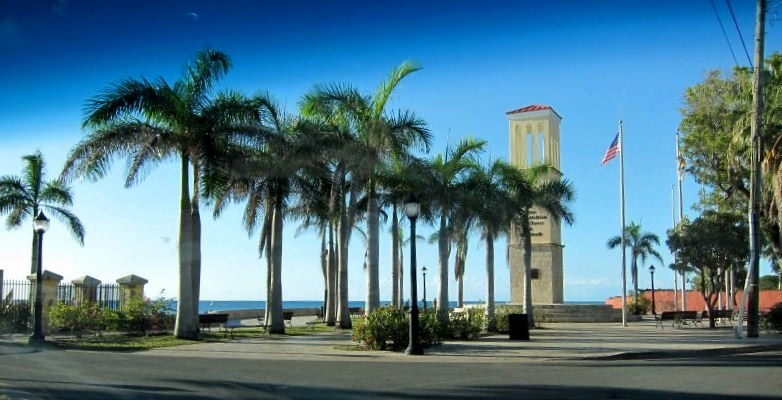 Many times during our stay on St
Croix GB and Sarah took us out and about, we learned new stuff, met loads of new
people and went all over the island, assisted by Sarah and her Australian
speaking GPS man giving instructions. St Croix was known to the island's first
inhabitants were the Igneri, Taino and Carib Indians. Archeologists have dated
evidence of Indian life back to 2500 BC. The Tainos called the island "Ay Ay"
meaning the river. To the Caribs it was "Cibuguiera" or stony
land. Columbus named it "Santa Cruz" or Holy Cross which the French later
adopted to their language; hence, St Croix. The Danes settled in Christiansted
in 1735, constructing much of the beautiful architecture we have
seen on our wander through the town. Frederiksted, on the west end, was
settled seventeen years later.
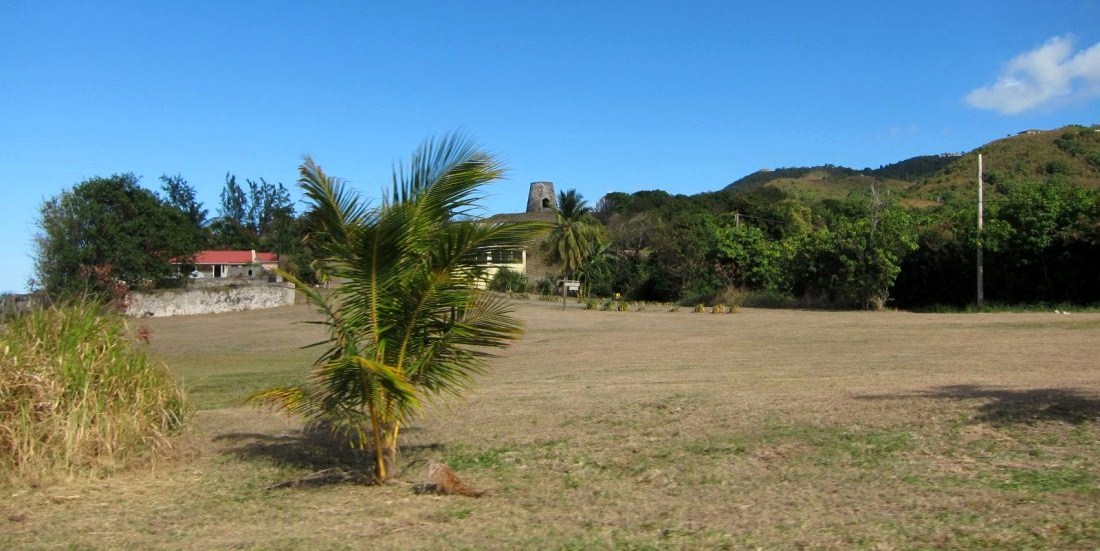 We drove past
many old sugar mills. Sugar plantations, powered by the backbreaking work
of slaves, led to most of the island's development in the 1700's. Sugar was king
and slavery was the unfortunate reality. In 1803, Denmark severed its ties to
the slave trade. On the 3rd of July 1848, the slaves on St Croix demanded and
were given their freedom.
 We stopped along the way by a post box, we have taken shots of theses before, but we've
never actually known someone who rents a box - we have now.
The US planted the Stars and Stripes
in 1917. Initially the Navy was assigned the role of governing the territory.
The US Virgin Islands is now governed by a fifteen member legislature, a
governor and lieutenant governor, and its own Superior Court system. St Croix's
economy has seen ups and downs in its history. When sugar production decreased,
so did the island's wealth. Agriculture was once a booming business when St
Croix was known as "The Breadbasket of the Caribbean". Now only a small number
of farmers still cultivate the land. When the oil and alumina industries landed
on St Croix's South Shore in the 1960's and 70's, so did thousands of workers
from Puerto Rico, down island and the US mainland, bringing a boost to the
island's population and economy. The aluminium factory has since closed and
reopened as an Ethanol Plant, and the HOVENSA oil refinery remains one of the
largest in the world also one of the largest employers in the territory,
along with rum production, government and tourism.
 We stopped for a
few minutes at the yacht club to take in the view.
As a result of its patchwork history,
the island remains a melting pot of cultures, bringing people of African, Middle
Eastern, Hispanic, East Indian and European descent together, living quite
peaceably on just eighty square miles of land. Perhaps this is why I fell in
love with this island, the mix is just right, the people incredibly friendly and
helpful. We trotted into a shop to ask for directions, the proprietor was an
Irishman - we chatted for ages. It reminds me very much of Cornwall when I
first worked there in 1989.
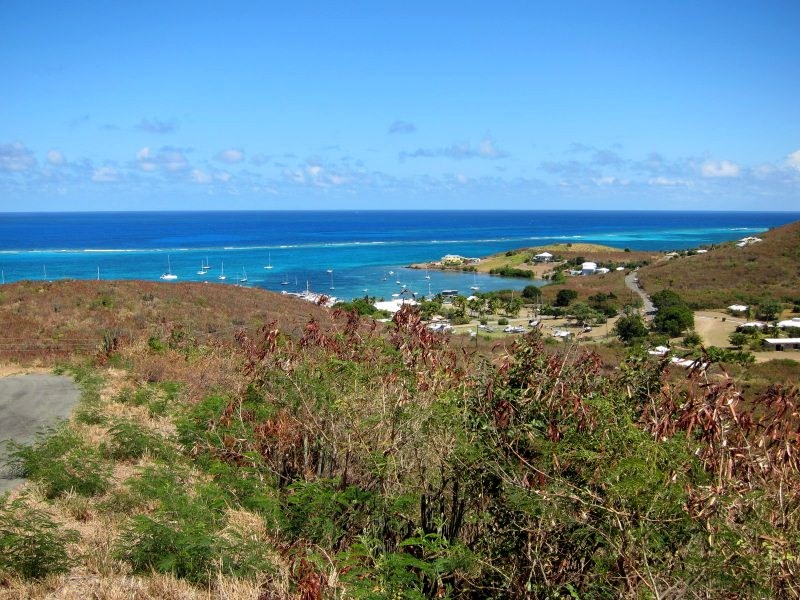 Next we went up to see the acre of land that one day will be GB and Sarah's new
house - we wish them good luck
  Spectacular
views
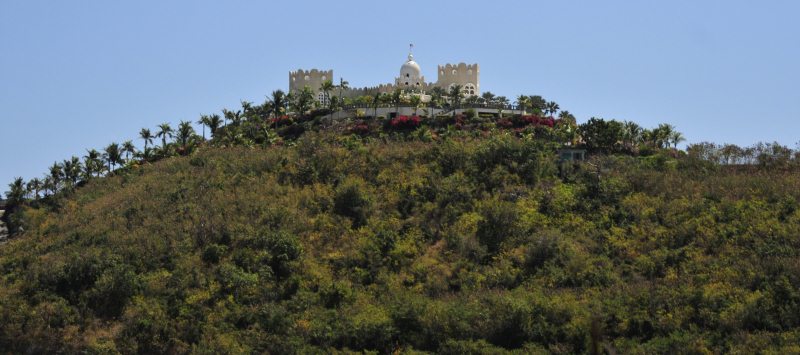  On the hill
opposite the acre, the neighbour - a real Contessa
 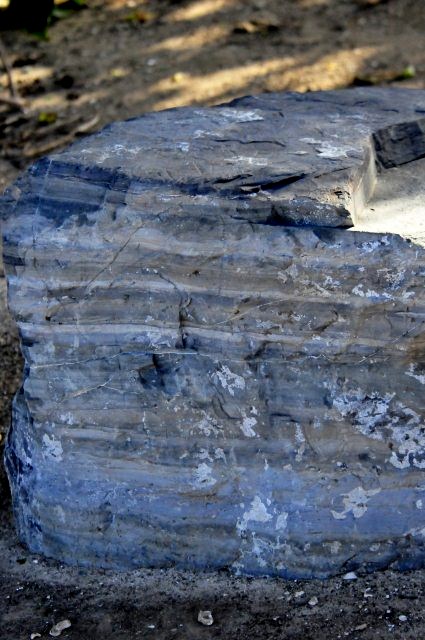 At the Columbus
landing site we were introduced to Blue Stone
- locally known as Blue Bitch, added to house builds adds a huge
cost
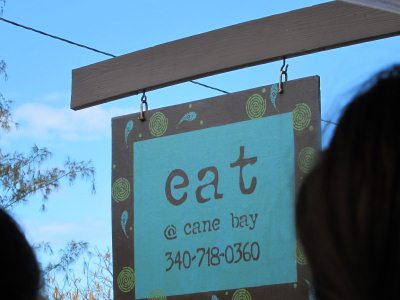 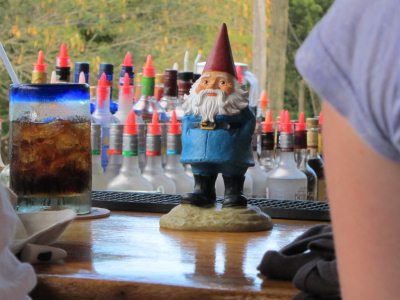 We stopped for a great lunch at
Cane Bay and met the
new bartender
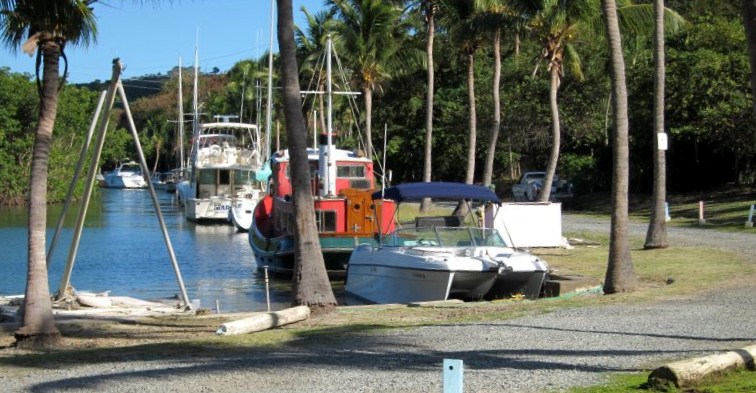 Next a hurricane hole at Salt Bay Marina
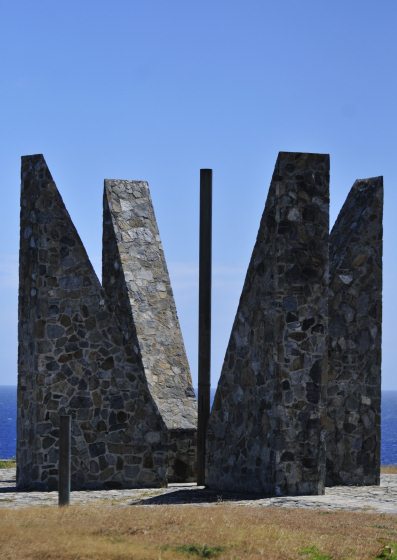 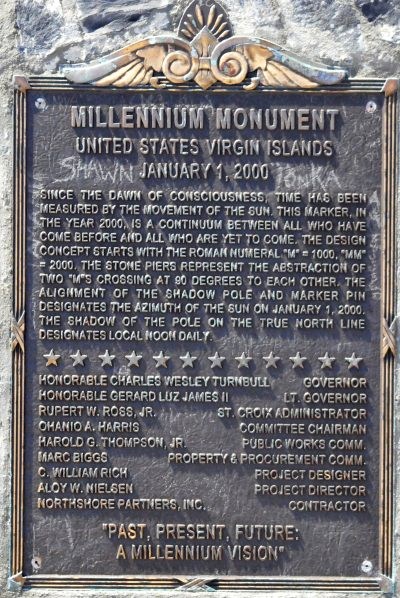 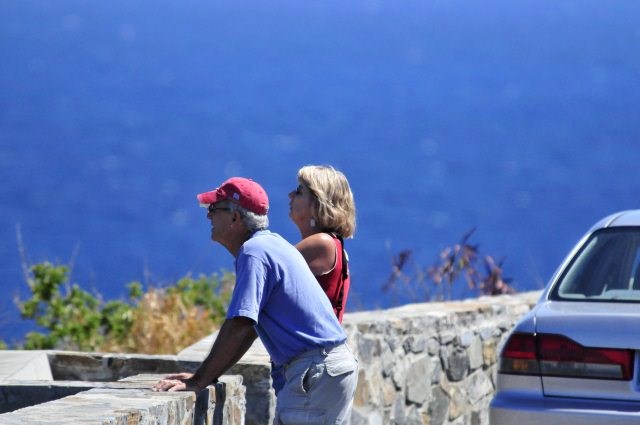 Up at Point
Udall, the easternmost part of the US, we took in the views
 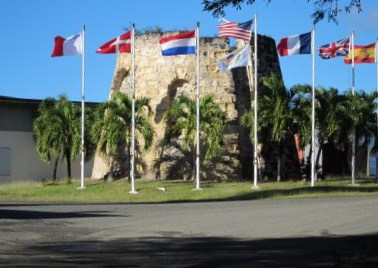 A quick once round the Cruzan Rum factory, then a bit of
shopping
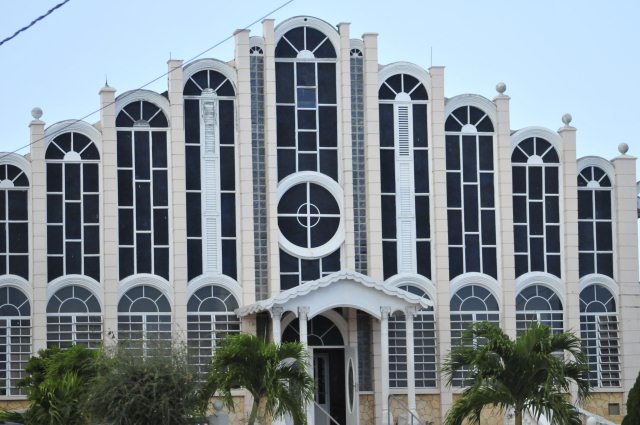   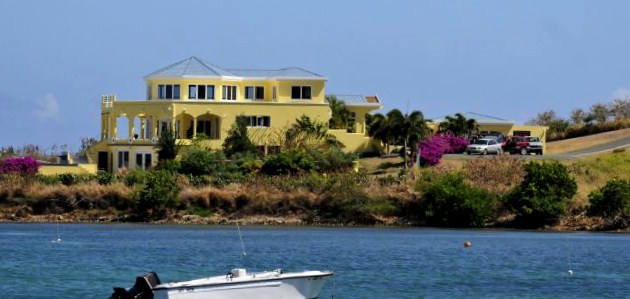 A unique looking
church, a couple of cool signs and a stunning house
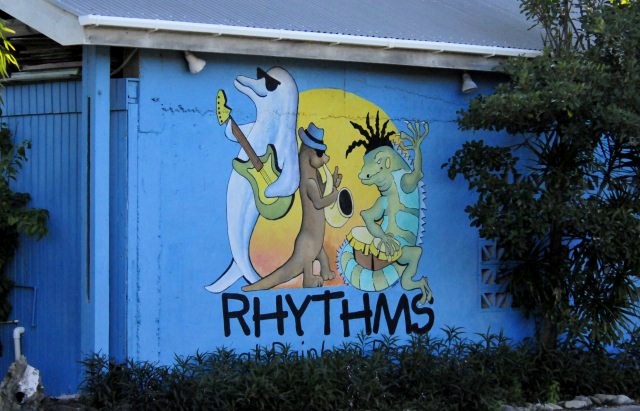 We ended our tour at a wonderful beach bar - tired but seen so much of this
wonderful island
ALL IN ALL WE
CANNOT BEGIN TO THANK GB AND SARAH ENOUGH
|